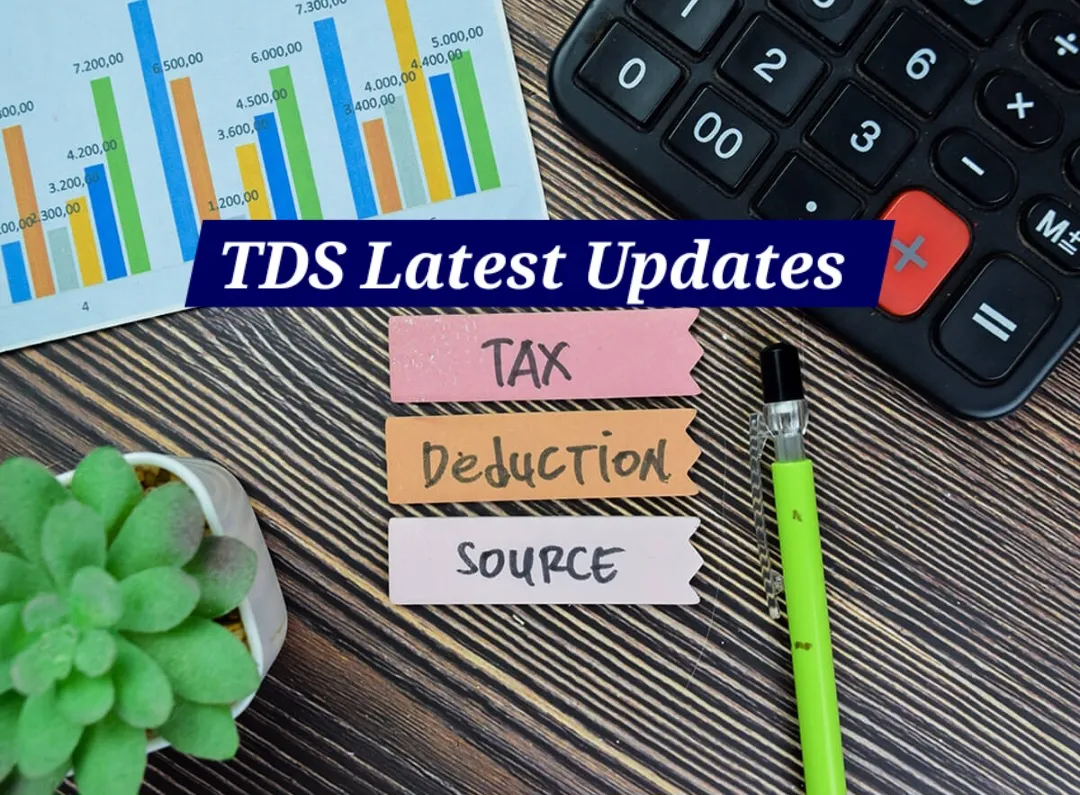
Introduction
Tax Deducted at Source (TDS) and Tax Collected at Source (TCS) are important parts of the Indian tax system. They help ensure taxes are collected efficiently. Staying updated with the latest TDS and TCS rates is crucial for both taxpayers and businesses. This helps them follow rules and avoid fines. In this guide, we will provide an easy-to-understand overview of the updated TDS and TCS rates for the financial year 2024-25 (Assessment Year 2025-26).
1. What are TDS and TCS?
TDS means that when someone makes a payment, they deduct a certain percentage as tax. This deduction happens at the time of payment. After that, the payer deposits this tax with the government. TDS applies to different types of income. For example, it applies to salaries, interest, dividends, and payments to contractors.
TCS is different. It involves the seller collecting tax from the buyer at the time of sale. This usually applies to specific transactions. For instance, it applies to the sale of alcoholic drinks, tendu leaves, timber, and minerals.
2. Key Changes in TDS Rates for FY 2024-25
The government has updated several TDS rates for FY 2024-25. Here are the key changes:
- Section 192 (Salaries): The employer will deduct TDS based on the income tax slab rates for individuals and Hindu Undivided Families (HUFs).
- Section 194 (Dividends): The TDS rate for dividends remains at 10%. This rate applies when the payment exceeds ₹5,000.
- Section 194A (Interest other than Interest on Securities): The TDS rate for interest payments by banks is 10% for individuals and HUFs. This applies if the interest amount is above ₹40,000. For senior citizens, the threshold is ₹50,000.
- Section 194B (Winnings from Lotteries): The TDS rate for winnings from lotteries is 30%. This applies if the winnings exceed ₹10,000.
- Section 194C (Payments to Contractors): For payments to contractors, the TDS rate is 1% for individuals or HUFs and 2% for others. This is applicable when a single transaction exceeds ₹30,000 or ₹1,00,000 during a financial year.
- Section 194O (TDS on E-commerce Participants): A 1% TDS rate applies to e-commerce participants. This applies if the total amount exceeds ₹5,00,000.
These are just a few examples. You can refer to the complete TDS rate chart for FY 2024-25 for more details.
3. Key Changes in TCS Rates for FY 2024-25
The TCS rates have also been updated for FY 2024-25. Here are some of the changes:
- Alcoholic Liquor for Human Consumption & Tendu Leaves: The TCS rate remains at 1%.
- Timber and Other Forest Produce: The TCS rate for timber obtained through different methods is still 2.5%.
- Scrap Sales and Motor Vehicles: The TCS rate for scrap sales is 1%. For the sale of motor vehicles priced over ₹10 lakh, the TCS rate is also 1%.
- Sale of Goods: The TCS rate is 0.1% if the sale of goods exceeds ₹50 lakh.
- Tour Program Packages: A 5% TCS rate applies to overseas tour packages.
Businesses involved in these goods and services must ensure they collect TCS correctly. This helps them stay compliant.
4. Why Compliance and Timely Filing Matter
Not following the updated TDS and TCS rates can result in penalties. Therefore, it is crucial for taxpayers, businesses, and professionals to:
- Deduct and Collect Taxes Accurately: Always ensure TDS and TCS are deducted and collected at the correct rates.
- Deposit Taxes on Time: Deposit all deducted and collected taxes within the specified timelines.
- Report Accurately: File TDS and TCS returns correctly to avoid penalties.
5. Conclusion
Understanding the updated TDS and TCS rates for FY 2024-25 is essential. This knowledge helps you follow the rules and ensures smooth business operations. This guide should help you understand the changes better. For more details, talk to your tax advisor or refer to the full TDS and TCS rate chart for this financial year.
For more information please refer below:
LinkedIn Link : RMPS Profile
This article is only a knowledge-sharing initiative and is based on the Relevant Provisions as applicable and as per the information existing at the time of the preparation. In no event, RMPS & Co. or the Author or any other persons be liable for any direct and indirect result from this Article or any inadvertent omission of the provisions, update, etc if any.
Published on: September 3, 2024
